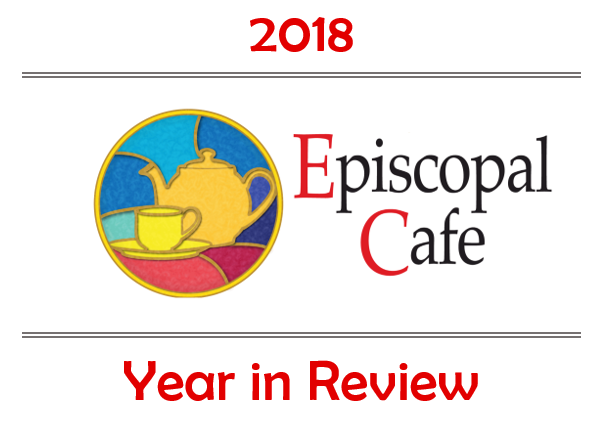We’ve published nearly a thousand posts since January 1st, but these were the ten most read…
Number One
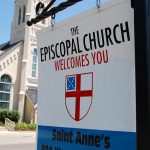 We looked a t a Gallup poll that tried to glean answers to why people did and did not go to church. This one generated a lot of heat in the comments both on our site and on Facebook, mostly around the poll’s finding that music was consistently found to be the least important aspect of church-going.
We looked a t a Gallup poll that tried to glean answers to why people did and did not go to church. This one generated a lot of heat in the comments both on our site and on Facebook, mostly around the poll’s finding that music was consistently found to be the least important aspect of church-going.
Number Two
Albany Bishop draws red line, challenges authority of GC
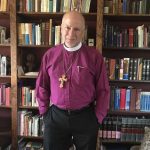 General Convention 2018 passed Resolution B012 which was meant to take questions on marriage equality out of the bishops’ hands and place them at the discretion of the local parish and clergy. Several conservative dioceses have opted to go the route of alternative episcopal oversight (aka DEPO) but the Bishop Albany, William Love said no way, no how and that marriage equality was the work of Satan leading those “struggling with same sex-attraction” away from God’s love.
General Convention 2018 passed Resolution B012 which was meant to take questions on marriage equality out of the bishops’ hands and place them at the discretion of the local parish and clergy. Several conservative dioceses have opted to go the route of alternative episcopal oversight (aka DEPO) but the Bishop Albany, William Love said no way, no how and that marriage equality was the work of Satan leading those “struggling with same sex-attraction” away from God’s love.
Number Three
Presiding Bishop Curry to join procession and vigil to White House
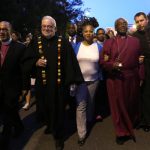
Building on the Reclaiming Jesus Declaration, a wide array of Christian leaders led a procession to the White House and candlelight vigil in May, Jim Wallis, founder of Sojourners said that it was “in response to the moral and political crises at the highest levels of political leadership that are putting both the soul of the nation and the integrity of Christian faith at stake. The elders call upon all Christians to remember that our identity in Jesus precedes every other identity.”
Number Four
Bomb explodes at Episcopal Church and school in Texas
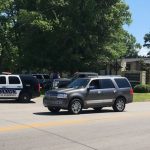 A bomb exploded early in the morning of May 10 at a bomb exploded at St. Stephens Episcopal Church and All Saints Episcopal School in Beaumont, TX. No one was injured.
A bomb exploded early in the morning of May 10 at a bomb exploded at St. Stephens Episcopal Church and All Saints Episcopal School in Beaumont, TX. No one was injured.
This was the second bomb discovered in Beaumont in a two-week period and later in June, Jonathan Matthew Torres, was charged and indicted for use of an explosive to damage property, possession of an unregistered destructive device, and mailing a threatening communication.
Number Five
Clergy employment in the Episcopal Church: A new landscape
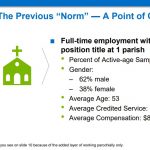 This story recounted the findings of research undertaken by the Church Pension Group to understand the state of clergy employment in the church. Among its key findings were that just over half (52%) of all active clergy were in traditional full-time roles in a church institution. Of those in full-time positions, nearly 2/3 (62%) were male.
This story recounted the findings of research undertaken by the Church Pension Group to understand the state of clergy employment in the church. Among its key findings were that just over half (52%) of all active clergy were in traditional full-time roles in a church institution. Of those in full-time positions, nearly 2/3 (62%) were male.
Number Six
Lay leaders attempt takeover of church in Darien
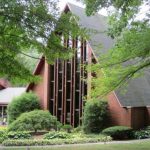 In a convoluted power struggle, the vestry of a Connecticut church attempted to lock out (literally) the rector it had called just 18 months prior. Their actions were in response to a meeting scheduled by the bishop to attempt to mediate the conflict. Subsequently, the bishop did meet with the vestry and opted to not break the existing pastoral relationship. The Vestry responded to the Bishop’s judgment by filing a claim in State Court. In response to that, the Diocesan convention stripped the church of its parish status; naming it instead a a worshiping community, placing the church “under the exclusive supervision, direction, and control of the Bishop” who immediately appointed the former Rector of St. Paul’s, the Rev. Canon George I. Kovoor to the position of Priest-in-Charge. Bishop Douglas notes that “Canon Kovoor and I continue to work together to reconcile matters with the former Vestry, praying that they will return to St. Paul’s and cease their legal actions.”
In a convoluted power struggle, the vestry of a Connecticut church attempted to lock out (literally) the rector it had called just 18 months prior. Their actions were in response to a meeting scheduled by the bishop to attempt to mediate the conflict. Subsequently, the bishop did meet with the vestry and opted to not break the existing pastoral relationship. The Vestry responded to the Bishop’s judgment by filing a claim in State Court. In response to that, the Diocesan convention stripped the church of its parish status; naming it instead a a worshiping community, placing the church “under the exclusive supervision, direction, and control of the Bishop” who immediately appointed the former Rector of St. Paul’s, the Rev. Canon George I. Kovoor to the position of Priest-in-Charge. Bishop Douglas notes that “Canon Kovoor and I continue to work together to reconcile matters with the former Vestry, praying that they will return to St. Paul’s and cease their legal actions.”
updated according to the bishop’s comment below – many thanks!
Number Seven
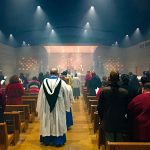 A political scientist, Benjamin Knoll, dug through the results of a 2104 Pew survey on religion and identified three primary types of Episcopalians.
A political scientist, Benjamin Knoll, dug through the results of a 2104 Pew survey on religion and identified three primary types of Episcopalians.
Number Eight
Sewanee School of Theology faculty respond
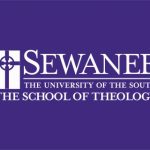 The faculty of the School of Theology of the University of the South responded to the actions of the Board of Regents that declined to revoke the honorary degree for Charlie Rose, who had been credibly accused of sexual misconduct. In declining the Board cited sin and forgiveness, but he theology faculty suggested they needed to look more deeply into these tenets of the faith. Eventually, the Board reversed its initial decision and rescinded the honors.
The faculty of the School of Theology of the University of the South responded to the actions of the Board of Regents that declined to revoke the honorary degree for Charlie Rose, who had been credibly accused of sexual misconduct. In declining the Board cited sin and forgiveness, but he theology faculty suggested they needed to look more deeply into these tenets of the faith. Eventually, the Board reversed its initial decision and rescinded the honors.
Number Nine
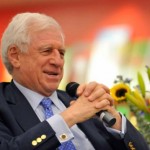 This story told of the outcry against the Revd Canon John C. Danforth, Episcopal priest and former US Senator who was dismissive of allegations of sexual assault levelled against the nominee (and simultaneously reiterated his support of Clarence Thomas) and the New York Time op-ed signed by 328 Episcopal clergywomen.
This story told of the outcry against the Revd Canon John C. Danforth, Episcopal priest and former US Senator who was dismissive of allegations of sexual assault levelled against the nominee (and simultaneously reiterated his support of Clarence Thomas) and the New York Time op-ed signed by 328 Episcopal clergywomen.
Number Ten
Presiding Bishop Michael Curry responds to death of Rev Billy Graham
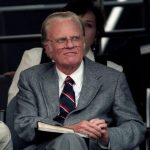 The Presiding Bishop responded graciously to the February death of noted evangelist Billy Graham in a written statement; saying “The crusades and ministry of the Rev. Billy Graham was a big tent, a revival tent — big, gracious, welcoming, and deeply grounded in the love that is the way of Jesus.”
The Presiding Bishop responded graciously to the February death of noted evangelist Billy Graham in a written statement; saying “The crusades and ministry of the Rev. Billy Graham was a big tent, a revival tent — big, gracious, welcoming, and deeply grounded in the love that is the way of Jesus.”
Bonus (and actually number Eleven)
Curry named religion newsmaker of the year
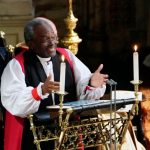
After the royal wedding of Prince Harry and Meghan Markle in May and his electrifying sermon, the Presiding Bishop became something of a media celebrity prompting the Religious News Association to name him their religious newsmaker of the year.
Those are the most-read, if maybe not the most important stories we shared in 2018. What were your favorites?

